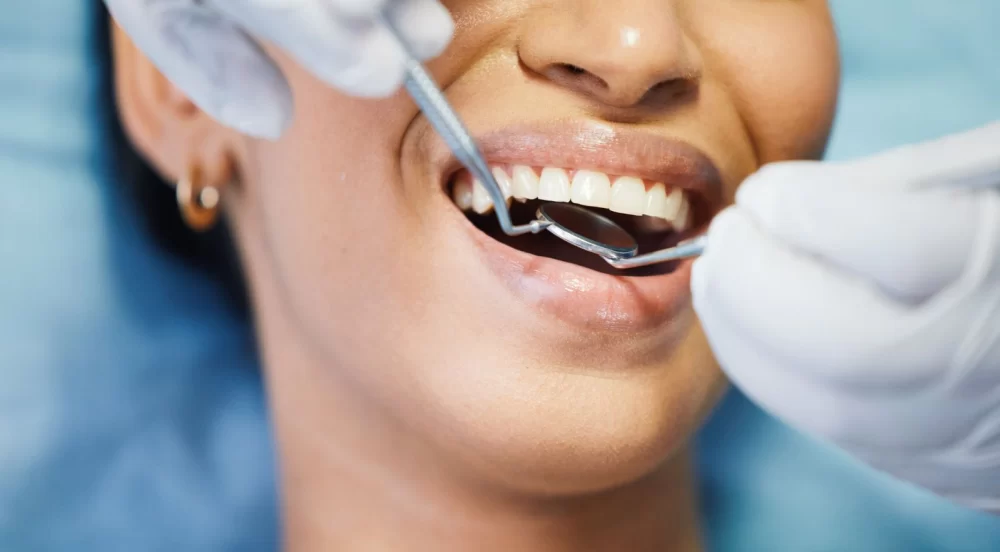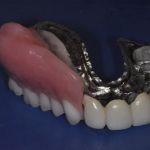
How to Maintain Good Oral Health with Diabetes and High Cholesterol
1. Why Dental Care Is Crucial for Diabetes and High Cholesterol
People with diabetes and high cholesterol face unique oral health challenges. High blood sugar levels can lead to dry mouth, gum disease, and infections, while high cholesterol is linked to inflammation that can worsen gum disease. Proper preventive dental care is essential to maintain overall health.
2. Common Oral Health Risks for Diabetics and People with High Cholesterol
2.1 Gum Disease and Inflammation
Diabetes reduces the body's ability to fight infections, making the gums more vulnerable to bacteria. When combined with high cholesterol, inflammation in the gums can become more severe, leading to periodontal disease.
2.2 Dry Mouth and Increased Cavities
Many diabetics experience dry mouth due to reduced saliva production. Without enough saliva to neutralize acids and wash away bacteria, the risk of cavities and bad breath increases.
2.3 Slow Healing and Infections
High blood sugar levels can slow down the body's healing process. This makes dental procedures, such as extractions or gum treatments, riskier for people with diabetes.
3. Effective Preventive Dental Care Strategies
3.1 Maintain Consistent Blood Sugar Control
Keeping blood sugar levels in check is key to preventing gum disease. Work closely with your doctor to monitor your glucose levels and reduce the risk of oral health complications.
3.2 Follow a Healthy Diet for Oral and Overall Health
Avoiding sugary foods and eating a balanced diet rich in fiber, lean protein, and healthy fats can help prevent plaque buildup and inflammation. Foods like leafy greens, nuts, and lean meats support both oral health and cholesterol management.
3.3 Establish a Strict Oral Hygiene Routine
Brushing at least twice a day with fluoride toothpaste, flossing daily, and using an antimicrobial mouthwash can help control bacteria and prevent gum disease.
3.4 Schedule Regular Dental Checkups
Visiting a dentist every six months for cleanings and checkups is crucial. Dentists can detect early signs of gum disease and provide professional cleanings to remove plaque buildup.
3.5 Use Diabetes-Friendly Dental Products
Look for toothpaste and mouthwash designed for sensitive gums and dry mouth. Xylitol-based oral care products can help reduce bacteria and improve saliva flow.
4. Early Warning Signs of Dental Problems to Watch For
4.1 Bleeding or Swollen Gums
If your gums bleed when you brush or floss, this could be an early sign of gingivitis. Addressing it early can prevent it from progressing into severe gum disease.
4.2 Persistent Bad Breath
Bad breath that doesn’t go away even after brushing may indicate a bacterial infection or dry mouth caused by diabetes.
4.3 Loose Teeth or Receding Gums
Gum recession or loosening teeth may signal advanced periodontal disease, which requires immediate dental attention.
5. How to Choose the Right Dental Care Products
5.1 Best Toothpaste for Diabetics and High Cholesterol Patients
Look for toothpaste with fluoride to strengthen enamel and xylitol to prevent bacterial growth. Avoid whitening toothpaste with harsh abrasives that may irritate sensitive gums.
5.2 Recommended Mouthwash for Diabetes and Gum Health
Choose an alcohol-free, antibacterial mouthwash to prevent dry mouth and reduce harmful bacteria.
5.3 Choosing the Right Toothbrush and Floss
A soft-bristled toothbrush and waxed dental floss can help clean teeth without causing irritation to sensitive gums.
6. Final Thoughts on Preventive Dental Care
Managing oral health is an essential part of overall well-being for people with diabetes and high cholesterol. By following a strict oral hygiene routine, maintaining a healthy diet, and using the right dental products, you can prevent serious dental complications. Take control of your dental health today and consult your dentist for personalized advice.







 Nashville Cosmetic and Implant Dentistry4.0 (208 review)
Nashville Cosmetic and Implant Dentistry4.0 (208 review) Lifetime Family Dental PLLC0.0 (0 review)
Lifetime Family Dental PLLC0.0 (0 review) Angela Gum D.D.S.4.0 (86 review)
Angela Gum D.D.S.4.0 (86 review) Total Dentistry-Streamwood4.0 (26 review)
Total Dentistry-Streamwood4.0 (26 review) Kurtis R. Finley DDS (Palo Alto Endodontic Group)5.0 (5 review)
Kurtis R. Finley DDS (Palo Alto Endodontic Group)5.0 (5 review) Dentist of Bixby Knolls4.0 (354 review)
Dentist of Bixby Knolls4.0 (354 review) The Importance of Oral Health Education During Pregnancy for a Healthy Pregnancy
The Importance of Oral Health Education During Pregnancy for a Healthy Pregnancy Best Tips for Brushing Your Teeth Properly for Healthy Gums: Essential Techniques for Oral Health
Best Tips for Brushing Your Teeth Properly for Healthy Gums: Essential Techniques for Oral Health Why Skipping Dental Checkups Can Lead to Bigger Oral Health Problems
Why Skipping Dental Checkups Can Lead to Bigger Oral Health Problems Advantages of Porcelain Dental Restorations
Advantages of Porcelain Dental Restorations How Can Diabetes Cause Tooth and Gum Problems? Preventing and Managing Oral Health Issues
How Can Diabetes Cause Tooth and Gum Problems? Preventing and Managing Oral Health Issues Healthy Habits for Promoting Good Oral Health and Hygiene: Tips for a Healthy Smile
Healthy Habits for Promoting Good Oral Health and Hygiene: Tips for a Healthy Smile